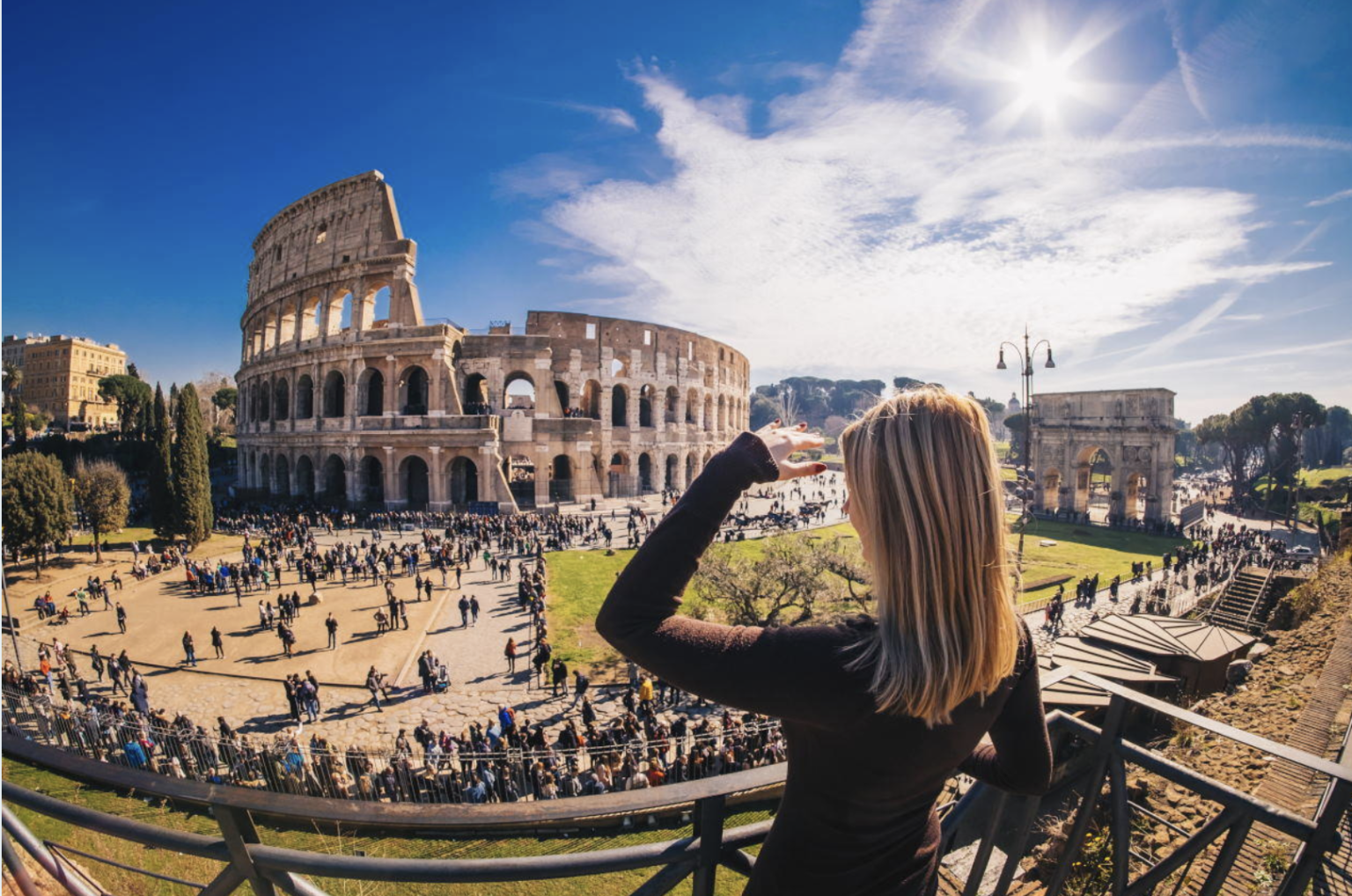The Colosseum, an epitome of Rome’s rich history and architectural grandeur, stands as an emblem of the city’s enduring legacy. For American tourists embarking on a journey to this ancient amphitheater, meticulous planning can ensure an unforgettable experience. In this detailed guide, we unveil the optimal timing, essential tips, and must-know recommendations to make your visit to the Colosseum a remarkable adventure.
Choosing the Best Time to Visit: Selecting the right time to explore the Colosseum can significantly enhance your overall experience, avoiding crowds and unfavorable weather conditions. The shoulder seasons of spring (April to June) and autumn (September to October) offer ideal conditions for discovering Rome and its attractions, including the Colosseum. Mild weather and fewer tourists create a perfect setting to immerse yourself in the city’s cultural tapestry.
Alternatively, braving the winter months (November to February) can reward you with a more intimate exploration of the Colosseum as crowds thin out further. However, be prepared for chilly and unpredictable weather, necessitating appropriate attire and gear.
Steering clear of the peak summer months of July and August is advisable, as scorching temperatures and throngs of tourists can detract from the charm of your visit. Additionally, many locals vacation during August, leading to temporary closures of businesses and attractions. Read more Colosseum visiting tips to help you on your way.
Planning Your Visit: Before embarking on your Colosseum adventure, meticulous planning can maximize your time and ensure a seamless experience. Here are essential tips to consider:
- Purchase Tickets in Advance: To bypass long queues and secure entry to the Colosseum, consider purchasing skip-the-line tickets online beforehand. Numerous reputable vendors offer various ticket options, including guided tours and combination tickets covering adjacent attractions like the Roman Forum and Palatine Hill.
- Arrive Early: Beat the crowds by arriving at the Colosseum early in the morning when it opens. This not only minimizes wait times but also allows for a more leisurely exploration of the amphitheater sans the midday hustle and bustle.
- Guided Tours: Enhance your Colosseum experience by joining a guided tour led by knowledgeable local guides. These tours often include skip-the-line access, offering invaluable insights into the monument’s history and significance.
- Dress Comfortably: Wear comfortable footwear and lightweight clothing suitable for exploring the Colosseum and its environs. Don’t forget to carry essentials like hats, sunglasses, and sunscreen, especially during warmer months.
- Stay Hydrated: Rome’s Mediterranean climate can be deceptively hot, necessitating hydration. Carry a reusable water bottle and replenish it at the city’s numerous drinking fountains (Nasoni) scattered across the landscape.
Exploring the Colosseum: Step back in time as you enter the Colosseum, where echoes of ancient battles and cheering spectators still resonate. Here are some highlights to savor during your visit:
- The Arena Floor: Experience the adrenaline rush of gladiatorial combat as you tread the arena floor, where fierce battles once unfolded. Gain a unique perspective of the amphitheater’s vastness and imagine the intensity of ancient spectacles.
- Underground Hypogeum: Descend into the Colosseum’s underground chambers to unravel the labyrinthine network where gladiators awaited their fate and wild animals were housed. Delve into the engineering marvels that facilitated elaborate performances in this remarkable structure.
- Upper Levels: Ascend to the upper tiers of the Colosseum for panoramic vistas of Rome’s skyline and a closer look at the amphitheater’s architectural splendor. Marvel at the precision and craftsmanship of ancient Rome’s builders.
- Exhibitions and Interpretive Displays: Immerse yourself in informative exhibitions and interpretive displays scattered throughout the Colosseum. Learn about different gladiator types, staging logistics, and the cultural significance of this iconic monument.
- Nearby Attractions: Extend your exploration beyond the Colosseum by visiting adjacent landmarks like the Roman Forum and Palatine Hill. These sites offer further insights into Rome’s storied past and archaeological wonders.
Additional Tips and Recommendations:
- Photography Etiquette: Respect fellow visitors and the site by refraining from flash photography and adhering to designated photography guidelines.
- Respectful Behavior: Treat the Colosseum with reverence, refraining from littering or causing damage to the site.
- Language and Communication: Familiarize yourself with basic Italian phrases to enhance interactions with locals.
- Currency and Payments: Carry cash for small purchases and transactions, while major credit cards are widely accepted.
- Safety and Security: Remain vigilant and cautious of pickpockets in crowded areas.
- Cultural Sensitivity: Respect local customs and traditions to foster positive interactions and cultural understanding.
- Exploring Beyond the Colosseum: Venture into other iconic landmarks and neighborhoods to delve deeper into Rome’s cultural fabric.
Conclusion: Visiting the Colosseum offers a gateway to Rome’s illustrious past and cultural richness. By planning strategically and adhering to essential tips, American travelers can embark on an enriching journey through ancient history and architectural marvels. Whether you’re captivated by the Colosseum’s legendary battles or enchanted by Rome’s vibrant atmosphere, your expedition is poised to create enduring memories and unforgettable experiences.
